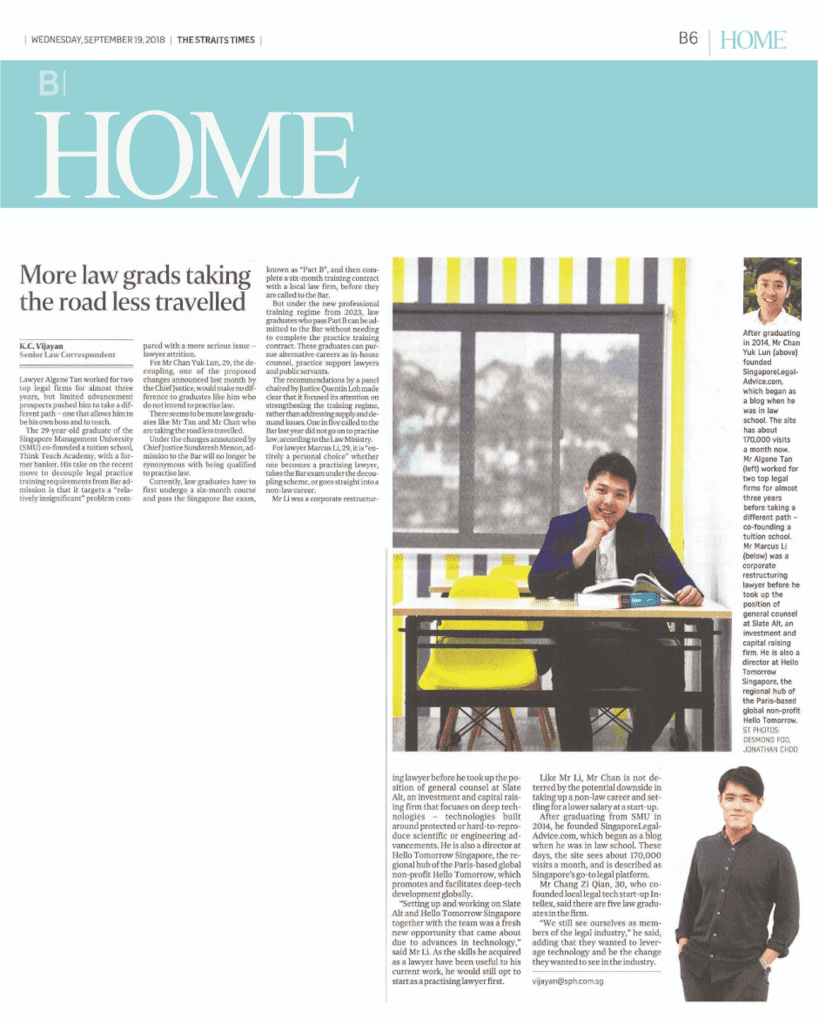Article Published On: 19 September 2018
The new professional training regime would take effect from 2023. It would offer two routes to law graduates to get called to the Bar. The two routes are as follows:
- Pass the Bar exam and complete a training contract with a law firm
- Pass the Bar exam
Law graduates who take the first route would be able to practise law at a law firm. Those who take the second route would not be able to do so. Both are still considered lawyers but what is the difference?
A lawyer who does not have a license to practise law can go on to be in-house counsels at companies, banks and private funds etc. That lawyer would only not be able to practise law in a law firm. This move was meant to provide alternative routes for law graduates who never intended to practise law in the first place.
In 2018, the Straits Times interviewed a number of law graduates who had taken “the road less travelled”. Co-founder Algene Tan was one of these law graduates who was interviewed. Although he did practise law for a number of years, he ended up moving to an industry completely unrelated to law.
When asked for his opinion about the new professional training regime, Algene had this to say:
Personally, if I was affected by this decoupling regime, I doubt I would have taken the short cut. I had hopes of being a big time lawyer but I was disillusioned along the way. It helped of course that I always enjoyed teaching. If I didn’t get into law school, I would have likely applied to be a teacher.
And so, I think the most pressing problem plaguing the legal industry is the high attrition rate. This problem was identified long ago but has not been solved. This decoupling targets a relatively more insignificant problem. If the move is to prevent graduates from taking up precious practice training contract places then a simple way would be to lower the law school intake, or to limit the recognised overseas universities (which I recognise has been done).
I don’t agree to giving law graduates a backdoor/shortcut to getting called to the bar. Why is it necessary to allow graduates who have no intention to practice law get admitted? To me, there is a certain nobility to the profession and this move, in my opinion, cheapens it. The issue here is to shift people’s mindset — that getting called to the bar, should not mark the end of your legal journey but a gateway into the practice of law. This was something the Chief Justice had pointed out yet this move ironically feeds into that mindset, and in the process will erode the sanctity of being an advocate and solicitor of the Supreme Court of Singapore.”
Do you agree with Algene’s views? Let us know your thoughts!



